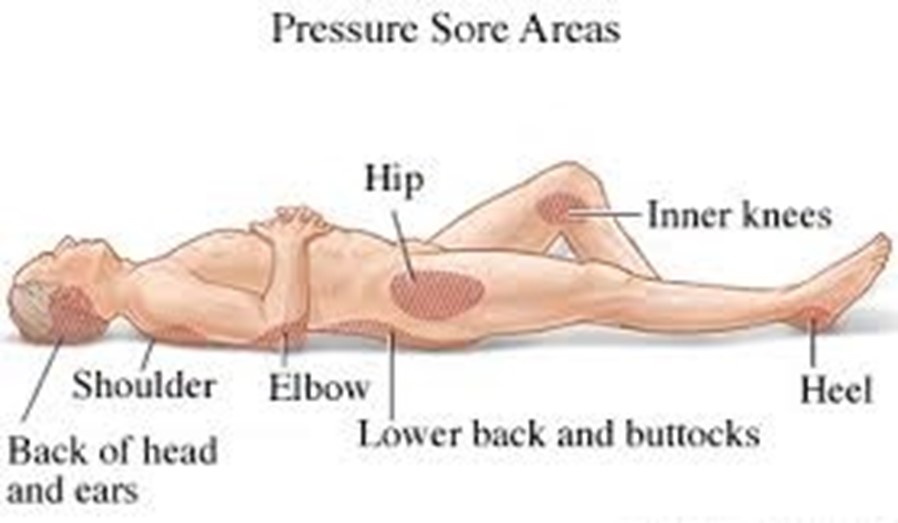What complication may be a result of decreased mobility?
Pressure injuries.
Diarrhea.
Euphoria.
Increased energy.
The Correct Answer is A
Pressure injuries may be a result of decreased mobility.
When a person has decreased mobility, they may spend extended periods of time in one position, which can put pressure on certain areas of the body and lead to the development of pressure injuries.

Choice B is not an answer because diarrhea is not typically a result of decreased mobility.
Choice C is not an answer because euphoria is not typically a result of decreased mobility.
Choice D is not an answer because increased energy is not typically a result of decreased mobility.
Nursing Test Bank
Naxlex Comprehensive Predictor Exams
Related Questions
Correct Answer is A
Explanation
Pressure injuries may be a result of decreased mobility.
When a person has decreased mobility, they may spend extended periods of time in one position, which can put pressure on certain areas of the body and lead to the development of pressure injuries.

Choice B is not an answer because diarrhea is not typically a result of decreased mobility.
Choice C is not an answer because euphoria is not typically a result of decreased mobility.
Choice D is not an answer because increased energy is not typically a result of decreased mobility.
Correct Answer is D
Explanation
Inform the client that driving would be dangerous.
Narcolepsy is a sleep disorder characterized by excessive daytime sleepiness and sudden attacks of sleep.
As a result, it can be dangerous for individuals with narcolepsy to engage in activities that require sustained attention and alertness, such as driving.
The nurse’s priority intervention would be to inform the client of this risk and advise them to avoid driving.

Choice A is not an answer because while avoiding caffeine after 6 pm may help improve sleep quality, it is not the priority intervention for a client with narcolepsy.
Choice B is not an answer because drinking two cups of regular coffee may worsen the symptoms of narcolepsy and is not a recommended intervention.
Choice C is not an answer because while participating in normal activities may be beneficial for overall health and well-being, it is not the priority intervention for a client with narcolepsy.
Whether you are a student looking to ace your exams or a practicing nurse seeking to enhance your expertise , our nursing education contents will empower you with the confidence and competence to make a difference in the lives of patients and become a respected leader in the healthcare field.
Visit Naxlex, invest in your future and unlock endless possibilities with our unparalleled nursing education contents today
Report Wrong Answer on the Current Question
Do you disagree with the answer? If yes, what is your expected answer? Explain.
Kindly be descriptive with the issue you are facing.
